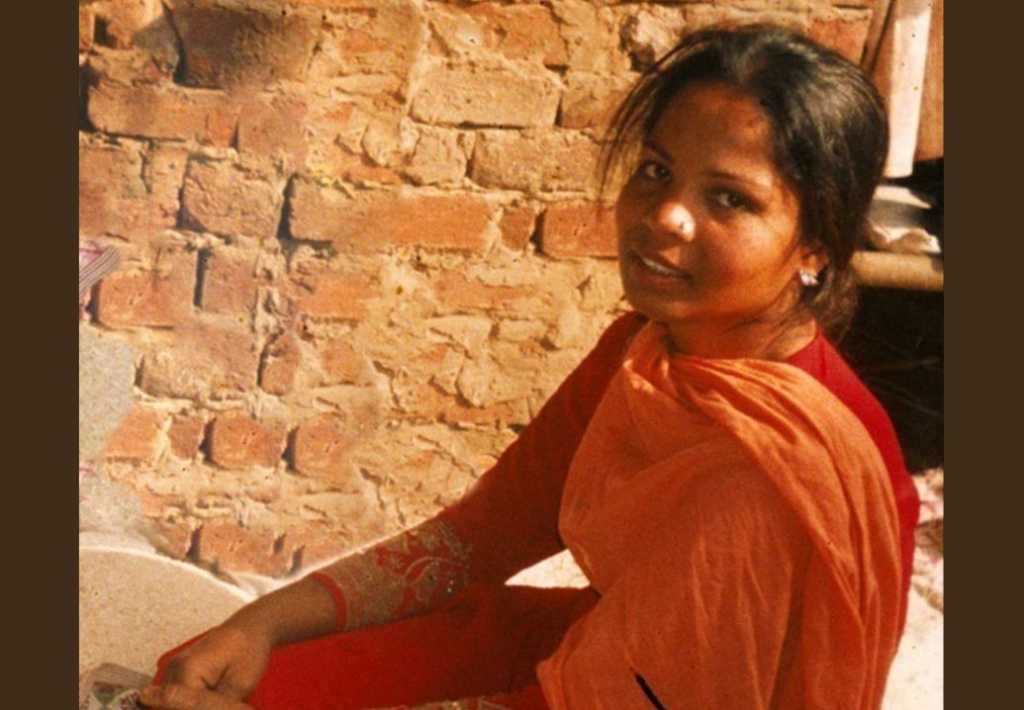Mother of five and acquitted Christian woman, Asia Bibi, will learn her fate next week when the Pakistani Supreme Court decides whether or not an appeal over her ruling can continue.
In October 2018, Bibi was cleared of her blasphemy conviction for which she had spent almost a decade behind bars. However, following a period of serious civil unrest and protests over her freedom, the government struck a deal with hardline Islamists in which it was specified that the Supreme Court would allow them to lodge a petition request for an appeal against Bibi’s acquittal.
Now, the court has announced that it will rule on the status of this petition on January 29, according to Anglican News.
“The court will determine if our appeal against her acquittal is admitted,” said Ghulam Mustafa Chaudhry, a lawyer who filed the petition after Bibi’s conviction was quashed.
The fight to try and once again take away Bibi’s freedom was reportedly lodged by radical Islamic preacher, Khadim Hussain Rizvi, who is also the founding chairman of the hardline religious political party, Tehreek-e-Labbaik (TLP).
Asia Bibi’s Islamist Neighbors Desperate to See the Exonerated Christian Mother Executed
TLP was the main actor behind the violent protests that brought many major Pakistani cities to a standstill in the days following the Supreme Court ruling last year.
Currently, the Christian mother is being held in an undisclosed location, reportedly within a safe house. There is, however, very limited information on Bibi and her family.
“We know the family are in a very safe location and not under the pressure of relocating from house to house as they once were,” said the chairman of the British Pakistani Christian Association, Wilson Chowdhry, who has been a long-time advocate of Bibi’s. “After all this beleaguered family has been through they deserve to be together. Now is the time to free Asia so she and Ashiq [Bibi’s husband] can join them.”
Chowdhry continued: “The Government of Pakistan must uphold the rule of law if they desire any respect in the company of other civilized nations. The harsh and draconian blasphemy laws need to be repealed and done away with.”
What is the background?
Bibi was initially arrested back in 2009 after supposedly entering into an argument with a group of women about a source of drinking water. The Islamist women accused Bibi of drinking from the same tap as them, to which Bibi allegedly responded, “Jesus Christ died for my sins. What did the prophet Muhammad do for you?” a remark which they believed offended their revered religious figure.
However, in the Supreme Court’s final judgment, it declared that the two sisters who accused Bibi “had no regard for the truth,” before adding that “the said semi-literate young sisters had a reason to level allegations against the appellant which could be untrue.”
Asia Bibi Still in Grave Danger as Supreme Court Ruling is ‘Checked for Errors’
The landmark judgment also noted that the prosecution’s presented evidence in the case “was nothing short of concoction incarnate.”
“Her conviction is set aside and she is to be relieved forthwith if not required in other charges,” said Chief Justice Saqib Nisar in the astonishingly bold ruling, as reported by the Guardian. But the court’s statement went even further, implying that Bibi had been subject to clear-cut prejudice in her arrest and trial. “It is ironical that in the Arabic language the appellant’s name Asia means ‘sinful’,” read the judgment written by Justice Asif Khosa, “but in the circumstances of the present case she appears to be a person, in the words of Shakespeare’s King Lear, ‘more sinned against than sinning’.”
The radicals, however, have remained blood-thirsty from the very day Bibi was arrested.
Prior to her acquittal, in Pakistan’s second-largest city of Lahore, hundreds of protesters gathered together and chanted “Hang infidel Asia.” Sickeningly, the hashtag #HangAsiaDefend295C was trending among the religious extremists on Twitter, with the 295c referring to “295-C” of Pakistan’s penal code which makes it a criminal offense to blaspheme against the Prophet Muhammad.
According to the Penal Code itself, 295-B refers to the prohibiting of “Defiling, etc., of Holy Qur’an,” and 295-C is in reference to the “use of derogatory remarks, etc., in respect of the Holy Prophet.” Other non-Islamic-specific violations contained in Pakistan’s criminal laws include “trespassing on burial places” and “disturbing religious assembly.”
Those who have chosen to support Bibi’s cause have faced grave consequences. In addition to the threat against Bibi, her family and the justices involved in her acquittal, other prominent politicians have lost their lives in the pursuit of religious freedom.
In 2011, shortly after Bibi’s conviction, Punjab Governor Salman Taseer was brutally murdered for speaking out in support of the wrongly convicted Christian woman. Shot dead on the streets of Islamabad, his own bodyguard was found guilty of the heinous crime and, though sentenced to death himself, he has since become a cult hero with a large shrine in his honor erected on the outskirts of the capital city.
Just two months later, Christian politician and outspoken critic of the blasphemy laws, Shahbaz Bhatti, was also assassinated — shot dead by the Pakistani Taliban as he traveled to work.
There is no doubt that until the appeal against Bibi’s ruling is thrown out and she is granted asylum away from Pakistan, her life will continue to hang in the balance.



